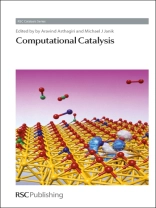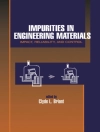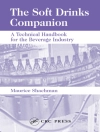The field of computational catalysis has existed in one form or another for at least 30 years. Its ultimate goal – the design of a novel catalyst entirely from the computer. While this goal has not been reached yet, the 21st Century has already seen key advances in capturing the myriad complex phenomena that are critical to catalyst behaviour under reaction conditions. This book presents an in depth review of select methods and approaches being adopted to push forward the boundaries of computational catalysis. Each method is supported with applied examples selected by the author, proving to be a more substantial resource than the existing literature. Both existing and possible future high-impact techniques are presented. An essential reference to anyone working in the field, the bookÆs editors share more than two decades of experience in computational catalysis and have brought together an impressive array of contributors. The book is written to ensure postgraduates and professionals will benefit from this one-stop resource on the cutting-edge of the field.
表中的内容
Charge transfer or reactive potentials;
Ab initio thermodynamics;
First-principles based microkinetic modelling;
Adaptive kinetic Monte Carlo;
Computational catalyst screening;
Enantioselective catalysis;
Dynamics of Surface Reactions;
Advances in DFT functionals for catalysis;
Modelling highly correlated systems in heterogeneous catalysis
关于作者
Prof. Michael Janik’s research uses computational, atomistic modeling methods to investigate and design catalysts for alternative energy conversion systems. Janik earned his Ph.D. (2006, U. Virginia) in the field of heterogeneous catalysis under the joint-supervision of Prof. Robert J. Davis and Prof. Matthew Neurock. His thesis work used experimental and computational methods to examine acid catalysis of alkylation reactions. He completed post-doctoral study examining electrocatalyst design for direct methanol fuel cells under the advisement of Matthew Neurock. He began his appointment as an Assistant Professor of Chemical Engineering at PSU in August, 2006. Current research activities focus on fuel cells and electrochemical systems as well as fuel processing for hydrogen and synthesis gas production. Recent research activities are funded by the Department of Energy, National Science Foundation, and the American Chemical Society Petroleum Research Fund. Janik is affiliated with the PSU Electrochemical Engine Center, PSU Institutes of Energy and the Environment, and the PSU Energy Institute. He has published 28 articles in peer reviewed journals.












